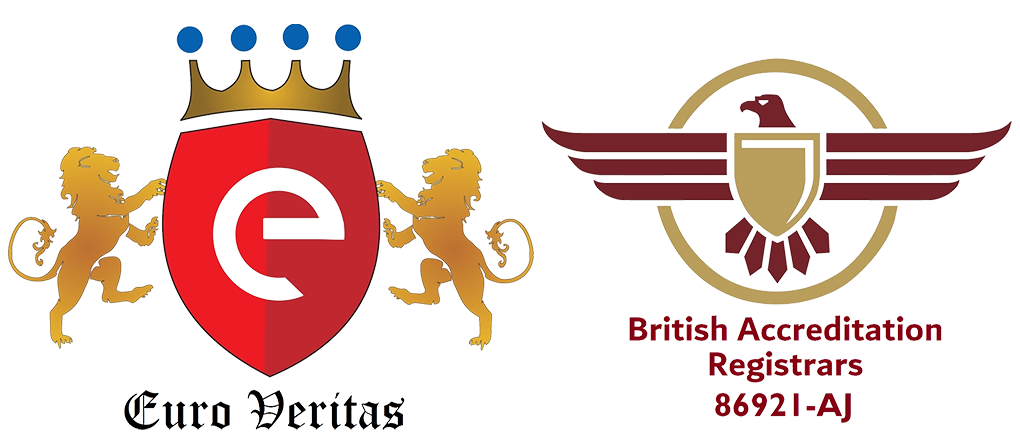AS 9100:2016, Version D - Quality Management Systems - Requirements for Aviation, Space, and Defense Organizations (Procedure No. EVL/AQMS/C-A/8295/C-8)
The standard AS 9100 is a customized quality management system for a specific aerospace industry. The standard was first published in October, 1999, by European Association of Aerospace Industries and Society of Automotive Engineers.
AS 9100 has replaced the previously existing AS 9000 and is highly synced with the current version of ISO 9001. Major aerospace manufacturers and suppliers worldwide require compliance and/or registration to AS 9100 as a condition of doing business with them.
Prior to development of AS 9100 standards for QMS, a similar approach was applied by the US Military through two specifications - MIL-Q-9858A. Quality Program Requirements, and MIL-I-45208A Military Specification: Inspection System Requirements.
For decades, these specifications had represented the basic rules of the industry. However, when the Government of United States adopted ISO 9001, and withdrew those two quality standards. Larger aerospace organizations then initiated the need for their suppliers to develop quality programs based on ISO 9001. AS 9100 is a standard initially yielded out of this ISO 9001.
AS 9100 Revision D of 2016, QMS – Requirements for Aviation, Space and Defense Organizations:
The latest update on AS 9100 is revision D. This version is completely aligned with ISO 9001:2015. Additionally, the following major items were included:
Consideration of Human Factors in nonconformity management and corrective action.
Counterfeit Parts Prevention is added as a new clause.
Risk clause was synced and amalgamated with the ISO 9001 risk requirements, but with enhanced importance of considering risks in operational processes.
Human Factors are included as a consideration in nonconformity management and corrective action.
Clarification on Configuration Management was clarified and improved to address stakeholder needs.
Product Safety is included as a separate and new element.
Awareness clause added with requirements for awareness – ethical behaviour and individual contribution to product and service quality and safety.
The latest version was released in September 20, 2016. The major reasons for the modification and publishing of the new version are:
Adapt to changed global scenario.
Concrete base for syncing with recent future requirements.
Improve customer satisfaction.
Identify and address business contexts and interested parties needs.
To better integrate with other management systems.
What are the key benefits of adopting AS 9100?
The primary beneficiaries of ISO AS 9100 are learning service providers. The International Standard is intended to:
To assure customer satisfaction, aviation, space, and defense organizations must provide, and continually improve, safe and reliable products and services that meet or exceed customer and applicable statutory and regulatory requirements.
Enhance the credibility of organizations supplying products and services to the aerospace industry.
Provide a model for improving production and service provision that can improvise its profitability.
Provide an internationally recognized instrument that demonstrates the reliability and quality of products and services.
Develops a knowledge base for the staff and stakeholders.
Why is AS 9100 Important:
This certification is crucial and vital for anyone working with aerospace manufacturers and suppliers. Most businesses in this segment wouldn’t do business with a company unless they are AS 9100 certified.
For example, NASA, the Department of Defense of the United States of America and aerospace titans like Boeing all need their suppliers to be AS 9100 certified.
In addition, AS 9100 offers a common worldwide aerospace standard that the entire business vertical can map with. AS 9100 shares many of the benchmarks set forth in ISO 9001, including:
Quality & Process-focused leadership.
Fact-based decision making.
Mutually-beneficial relationships with supply chain.
Continual improvement.
Improved quality consistency and workmanship with traceability.
However, there are 7 key areas in AS 9100 designed specifically for the aerospace industry:
1) Risk based system.
2) Encompassing needs and expectations of all stakeholders.
3) Planning for product realization.
4) Control of providers.
5) Design & Development.
6) Resource Management.
7) Product & System Monitoring & Measurement Systems.
Structure:
This standard consist of 7 clauses are as follows:
Clauses
1) Context of the organization
2) Leadership
3) Planning
4) Support
5) Operation
6) Performance Evaluation
7) Improvement
How to get / what is Process for AS 9100 certification? From Euro Veritas, UK (www.euroveritas.com) accreditated from BAR-UK
To get the ISO certification from Euro Veritas, UK (www.euroveritas.com) accreditated from BAR-UK, please fill up Application form & our team will contact you.
Step-1 Query from the Client.
Step-2 Filling up the Application form.
Step-3 Agreement Approval.
Step-4 Stage-1 Audit.
Step-5 Stage-1 Audit NC’s Closing.
Step-6 Stage-2 Audit.
Step-7 Stage-2 Audit NC’s Closing.
Step-8 Certificate Release.



